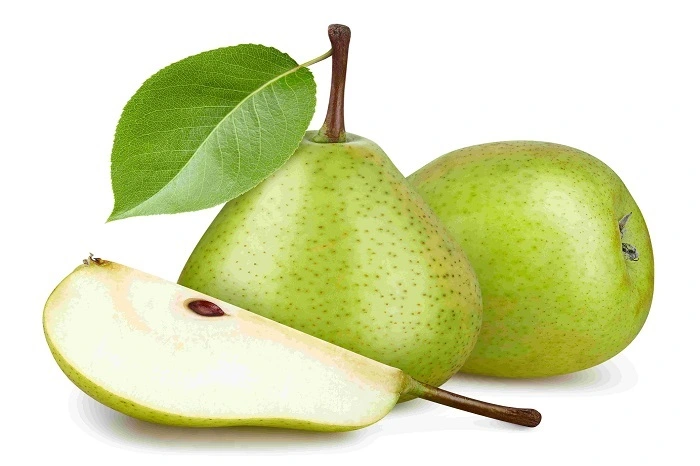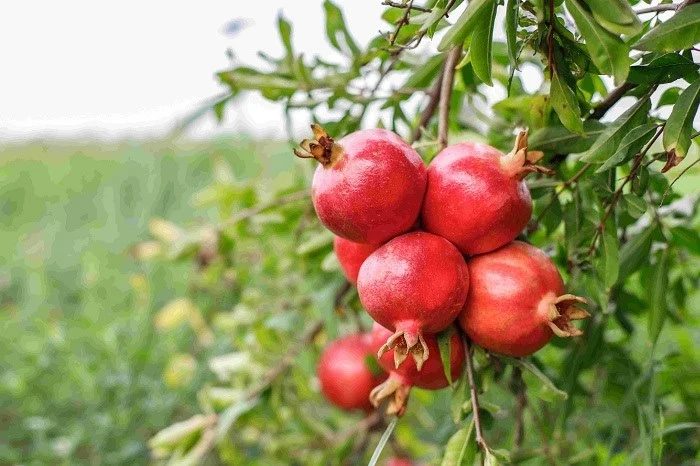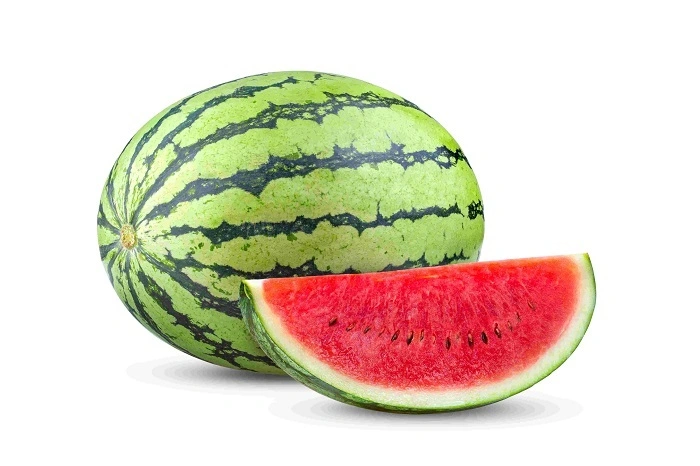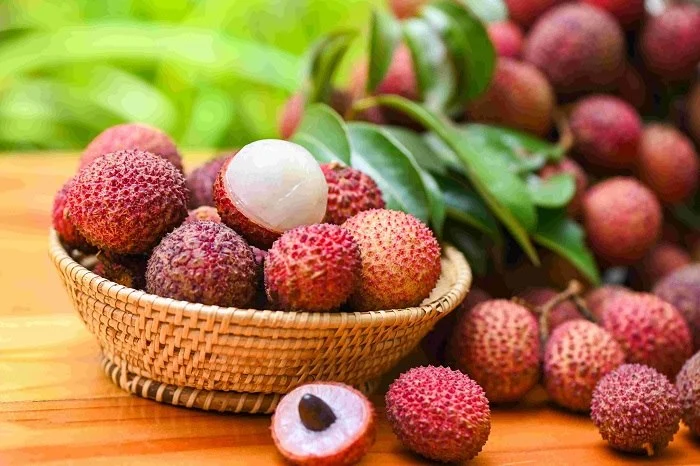Pear
Sweetness In Every Bite, Bursting With Flavor
Pomegranate
Deliciously Juicy, Naturally Sweet
Water Melon
Taste The Goodness Of Nature's Colorful Palette
Lychee
Juicy Perfection, Handpicked Just For You
Avocado
Fresh Taste, Straight From Nature
Healthcare specialists know fruit to be a very nutritious, pleasant, and convenient supplement to any diet. With over 2,000 fruit kinds available, you may wonderwhich ones to choose. Each type of fruit provides a distinct collection of nutrients and benefits.
The idea is to consume fruits with multiple colors, each containinga unique collection of healthful nutrients. All fruits are healthy, but some stand out for their particularly high quantities of vitamins, minerals, fiber, and antioxidants.
Eating more fruits like pear, pomegranate, watermelon, lychee, and avocado can increase the quality of your diet while also potentially benefiting your health in other ways, such as lowering your risk of common health disorders like heart disease and some cancers.
Top 5 Healthiest Fruits To Eat
Pear
Sweetness In Every Bite, Bursting With Flavor

Pears are high in vital antioxidants, plant components, and nutritional fiber. They're also free of fat and cholesterol. They can improve a person's digestion, cholesterol, and overall health. A medium-sized pear has about 100 calories.
Consuming pears as part of a well-balanced, nutritious diet may help with weight loss and lower one's risk of cancer, diabetes, and cardiovascular disease.
Pears are abundant in antioxidants, including vitamin C, vitamin K, and copper. These molecules fight the effects of free radicals Trusted Source, shielding cells from the harm they can do.
Providing Fiber:Increasing fruit and vegetable intake is a simple strategy to increase fiber intake. For example, one medium-sized pear contains 5.5 g of fiber, or around 22% of the daily recommended consumption for females under50.
Pears also contain pectin, a soluble fiber that nourishes gut microorganisms and promotes health. Adequate fiber intake improves good digestive function and can boost feelings of fullness after a meal. It may also lessen a person's risk of heart disease and overall cholesterol levels.
Improve Cardio Metabolic Health:The positive effects of eating pears on markers of cardio metabolic health werebetter in individuals who ate two pears per day compared to a control group that drank the same calorie drink. After 12 weeks, those who ingested two pears daily had improved systolic blood pressure, pulse pressure, and an improvement in waist circumference.
Risk of Pear:Most people can safely consume pears. Of course, if you are allergic, you should avoid consuming them. The one major concern of eating too many pears is digestive distress due to the high fiber content.
Types of Pear
- Aurora Pear
- Baldwin Pear
- Black Worcester Pear
- Callery Pear
- Chines White Pear
Pomegranate
Deliciously Juicy, Naturally Sweet

Pomegranates are a sweet, bitter fruit with thick, red skin. While the skin is not edible, it contains hundreds of juicy seeds that can be eaten alone or used in salads, oats, hummus, and other foods.
Pomegranates have been enjoyed since ancient for their health advantages. Pomegranates also supply additional nutrients, such as potassium, which is deficient in most Americans' diets. Potassium is required for blood pressure regulation, nervous system function, and many other vital biological activities.
Potassium-rich foods and beverages in your diet are necessary. Pomegranates' anti-inflammatory and anticancer characteristics show promise for cancer treatment and prevention, but additional research is needed to confirm this.
Providing Fiber:Pomegranate arils are high in fiber, which is beneficial for digestion. Fiber supports the healthy bacteria in your digestive tract and promotes regular and comfortable food elimination, which protects against constipation.
Promote Heart Health:Regular use of pomegranate products, such as pomegranate arils and pomegranate juice, can assist in protecting your heart health. Pomegranates may assist in loweringheart disease risk factors such as high blood pressure and cholesterol levels.
Risk of Pomegranate:Most people can consume pomegranate products such as arils and juice without harm. People allergic to pomegranates should avoid pomegranate juice, arils, and other pomegranate-containing meals and drinks.
Furthermore, pomegranate juice is strong in carbs and poor in protein and fiber. High carbohydrate diets have a negative impact on blood sugar levels, particularly among diabetics.
Types of Pomegranate
- Sienevyi
- Desertnyi
- Angel Red
- Sin Pepe
- Ariana
Water Melon
Taste The Goodness Of Nature's Colorful Palette

Watermelon, a sweet and juicy fruit, represents summer. At first appearance, you might think it's mostly sugar and water. However, as you delve in and find its diverse range of nutrients, you'll be shocked at how many possible health benefits it possesses.
Watermelon can be an excellent choice if you want to maintain or achieve a healthy weight while avoiding the temptation of higher-calorie sweet treats. Watermelon has minimal calories and can keep you fuller for longer periods due to its high water content.
Support Digestion:Watermelon isn't high in fiber. Still, watermelon's fiber promotes digestive health. The fruit includes fluid and prebiotics, which are fibers that stimulate growth.
Prebiotics are associated with improved immune function, less inflammation, and a more cheerful mood. Prebiotics also increase mineral absorption, blood sugar and insulin levels, and may help prevent colon cancer.
Support Eye Disease:Early research suggests that eating watermelon daily improves excellent health and may lower the risk of chronic diseases like diabetes, obesity, cardiovascular disease, eye diseaseand cancer. This is most likely due to its antioxidants, which protectyour body from stress while preventing or slowing cell damage.
Risk of Watermelon:Watermelon contains lycopene, which, when ingested on a daily basis, can cause nausea, heartburn,loose stools, and inflammation. In rare situations, some people may be allergic to watermelon and develop responses such as hives, swelling, and difficulty breathing.
Types of Watermelon
- Seeded
- Seedless
- Reddish
- Yellow
- Orange
Lychee
Juicy Perfection, Handpicked Just For You

Lycheecontains beneficial vitamins, minerals, and antioxidants. Including this fruit in your diet is a healthy option. Lychees are grown in subtropical locations worldwide but are particularly popular in their native China and Southeast Asia.
They're known for their sweet and flowery taste and are usually eaten fresh, but they're also used in ice creams and processed into juice, sherbet,wine, and jelly.
They are rich in vitamins, minerals, and antioxidants. Lychees have an indigestible, pink-red, leathery skin that is removed before ingestion. The flesh is white and surrounds a black seed in the center.
Promote Heart Health:Lychees include elements that promote heart health, such as vitamin C and potassium. One lychee fruit provides 8% of your daily vitamin C requirements and can help you maintain healthy levels of this essential nutrient.
Vitamin C intake has been linked to improvements in heart disease risk factors such as hypertension. Lychees also include fiber, which helps maintain healthy cholesterol levels.
Risk of Lychee:People who are allergic to sunflower seeds or mugwort pollen may react to lychees. Lychees contain amino acids, which can cause serious hypoglycemia.
A heavy intake of lychees may result in dangerously low blood sugar, which can lead to brain harm. This side effect has only been observed in underweight youngsters suffering from famine in poor places of the world.
Types of Lychee
- Bengal Lychee
- Brewster Lychee
- Early Large Red Lychee
- Emperor Lychee
- Kwai Mai Pink Lychee
Avocado
Fresh Taste, Straight From Nature
Avocados provide essential elements such as healthy fats and fiber. They also include anti-inflammatory and antioxidant chemicals, which can reduce the risk of heart disease.
Avocados are nutritious, versatile, and delicious, becoming a kitchen staple in many families worldwide. Avocados are classified as berries despite being referred to as both fruits and vegetables.
They are a member of the Lauraceae plant family, which includes the cinnamon tree. Avocados are immensely popular in the health and wellness sector due to their high nutritional value and numerous health advantages.
High in fiber:Avocados contain fiber, a form of carbohydrate that your body cannot digest. Both soluble and insoluble fiber can be found in avocados.Fiber can reduce cholesterol and blood sugar levels, keep you regular, and make you feel full and content after a meal.
Promote Heart Health:Avocados include vitamins, minerals, good fats, and fiber, all contributingto cardiovascular health. An avocado-rich diet may help reduce heart disease risk factors, thereby preventing the start of the condition. Avocados' high potassium and magnesium content helps regulate blood pressure.
Risk of Avocado:Avocado allergies are extremely uncommon, but they do occur. Symptoms include wheezing,stuffy nose, coughing, and edema. They are often related to latex allergies.
Eating too many avocados can occasionally result in migraines, a common type of chronic headache. Migraines can produce vomiting,nausea, and light sensitivity, making operating difficult.
Types of Avocado
- Bogden Avocado
- Fuerte Avocado
- Hass Avocado
- Joey Avocado
- Kahaluu Avocado
Benefits of Eating Fruits
Maintains body weight:Fruits high in vitamin C help to control body weight. Furthermore, fruits are free of saturated fats and cholesterol, both of which are dangerous to cardiac health.
Aids in digestion:Fruits with high fiber content retain digestive qualities, which aid digestion in the human body. This also reduces the production of kidney stones.
Nourishing the skin and hair:They are abundant in antioxidants, which help the skin retain its vibrancy and beauty. Fruits such as papaya and avocadocan help with variousdermatological diseases. Vitamin A-rich fruits enhance the luster of the hair.
Hydrates the body:Because most fruits contain a lot of water, they are a quick and easy way to stay hydrated. Their intake is equally significant in both summer and winter.
Boosts the immune system:Fruits contain calcium, magnesium, and even vital vitamins such as vitamin K and vitamin E. These can heal a variety of chronic conditions while also increasing our resilience to germs and infections.
Improve Diagnostics:In short, eating fruit is essential for maintaining a healthy lifestyle. Having them on a regular basis will help to prevent the majority of disorders. However, if you notice any health difficulties, visit Apollo Diagnostics for a diagnosis. You may get expert diagnosis and treatment for any minor or big disease here.
Excellent source of essential vitamins:They are a rich source of minerals,vitamins,and phytonutrients. Eating various fruits, like a fruit salad, can help boost the body's vitality and wellness.
Keeping cardiovascular diseases at bay:Fruits also lessen the risk of heart disease and cancer. Fruits like pear, watermelon and avocadoare high in flavonoids, carotenoids, fiber, potassium, and magnesium, which protect the heart from a variety of diseases.
How much fruit should you eat per day?
The American Heart Association and other health organizations advise most people to strive for four to five servings of fruit and vegetables daily. One medium fruit roughly the size of an adult fist or a half-cup of sliced fruit makes a serving of fruit.
Consuming a diet high in fruits and vegetables increases lifetime and overall health by keeping off certain chronic illnesses.
Fresh fruit can help almost everyone, including individuals with health issues that affect blood sugar regulation, such as diabetes. Incorporating fruit into a diabetes-friendly diet canimprove diabetic control by lowering fasting blood sugar.
Tips for Consuming Fruits
Fruit is nutritious and may be included in most well-balanced diets, but consuming too much of it is easy. Fruit is highly delicious and easy to eat, so it's crucial to consume it in moderation to make room for other healthy meals that include critical nutrients, such as vegetables, nuts, and protein sources like fish.
Fresh or frozen, raw fruits have the most nutritional value. Though canned and dried fruit can be part of a healthy diet, it's best to avoid fruit products with added sugar, such as dried fruit plated in sugar and fruit canned in aheavy syrup, because overeating added sugar may harm your health and raise your risk of developing illnesses like heart disease anddiabetes.
Fresh fruits, such as watermelon and pear, are an easy snack because they are portable and can be combined with satisfying, high-protein meals like cheese or almonds.
Fruit can be added to a variety of meals, such as overnight oats, cheese plates,chia pudding, and salads, and can be consumed after.
Frequently Ask Question
Q. What fruits should we eat every day?
Avocado should be eat every day because it has high benefits.
Q. What is a healthy fact about fruit?
Fruits include numerous critical nutrients, which many people do not get enough of. Examples includefiber,potassium,vitamin C, and folate.
Q. Is it healthy or unhealthy to eat fruit every day?
Fruit is generally healthful for most people. While excessive sugar consumption can be detrimental, it does not apply to whole fruits.
Take A Juicy Journey Through The World Of Fruits






